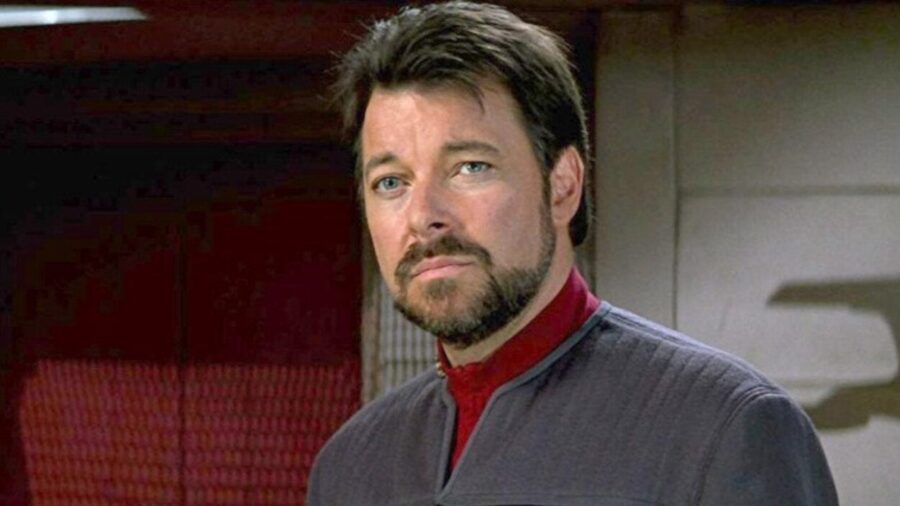Jonathan Frakes Reveals One Of His Biggest Star Trek Regrets
Johnathan Frakes played Captain Riker on Star Trek: The Next Generation, and the man recently revealed his biggest regret while on the series.

Star Trek was never a series that looked for an easy path. While it dazzled fans every episode with an adventurous space mission wrought with danger, it also took social justice issues head-on. Gene Roddenberry’s original intent for the series was to present many of society’s ills and injustices in a thinly veiled presentation of a science fiction adventure. In doing so, he created a crew as diverse as any we see even today, with a black female communications officer, a pan-Asian helmsman, and a Russian navigator. Even with the diversity of the original Star Trek and the continuing legacy of pushing boundaries, Jonathan Frakes now believes there is one moment where Star Trek: The Next Generation missed an opportunity.
Jonathan Frakes is best known as Captain William T. Riker, second in command to Captain Jean Luc Picard aboard the U.S.S. Enterprise in Star Trek: The Next Generation. While the series continued many of Star Trek‘s legacies and traditions of inclusivity and diversity, Frakes believes they missed one big opportunity. In an interview with The Companion, Frakes speaks about an episode that aired in 1992 titled “The Outcast.” In the installment, Riker finds himself on a planet with androgynous beings and experiences some chemistry with one of the inhabitants, Soren. While Frakes believes a man should have played this character, the role went to an androgynous female. Frakes goes on to say that the network seemed not to have the guts to imply that Riker was gay, and he views the episode as a missed opportunity.
Star Trek took the lead with social commentary when they depicted American T.V.’s first interracial kiss, only a few years after the Watts Riots. They also created a diverse group of the crew in ways that directly antagonized much of the climate of the time. Lt. Uhura served as a black character at a time when the Civil Rights movement was in full swing. Sulu represented a group of people that still remembered spending time in internment camps after the country’s overreaction to Pearl Harbor. And Chekov was a Russian character working alongside Americans in the thick of the Cold War. Star Trek: The Next Generation did a great job of following suit. They addressed such topics as the death penalty, culture exchange, the definition of humanity, and addiction. Jonathan Frakes shows in his interview that he went along with the franchise’s mission to push the boundaries of T.V. and provide a social commentary.
Jonathan Frakes isn’t alone in his adherence and dedication to the mission, as the new film reboots and new series have done their part. Sulu was revealed to have a male partner in Star Trek Beyond, adding a social commentary to the big screen. Star Trek: Discovery introduced Jet Reno as the first lesbian ship engineer in Season 2, doing their part. While the series has always been dedicated to pushing the boundaries of our social commentary. Jonathan Frakes proves that the cast and crew are all committed to going where no show has ever gone before.












